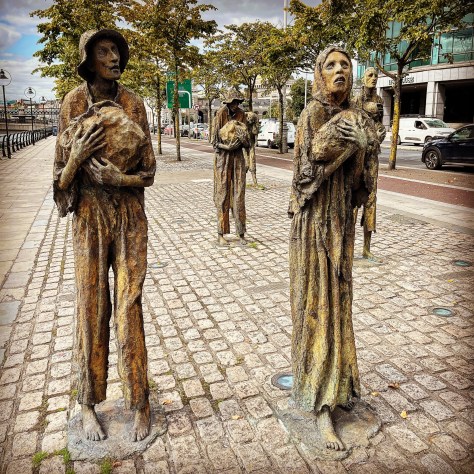
Well, a week like no other.
I spent Monday having internal meetings discussing various things. One meeting was how our Directorate could communicate more effectively what we do, with the rest of the business on our intranet. I do think that often people assume that others in an organisation know and understand what other parts of the organisation do. Of course, when you are immersed and close to what you and your team do, it can be easy to assume that others are also just as clear about your role and the work of your team. Most times they’re not. I am thinking about how I can communication the work I do, to the rest of the organisation. In some ways these week notes do that in one way.
Another meeting was about setting some priorities in the public affairs space. With all the changes that are taking place in Government, it can be dynamic and changing landscape. A new prime minister, a new secretary of state and new ministers; does mean making new connections and new relationships. It is also very likely that there will be no policies as well.
I spent time on Tuesday preparing for a presentation that I was delivering in Dublin. It did involve reviewing existing presentations and documentation; as well as designing and producing a presentation.
I flew out to Dublin on Wednesday.

I have been to Dublin four times before. I was there in August 1998 when I was on a day trip, we were camping in Pembrokeshire and caught the ferry to Rosslare and then the train to Dublin. I do remember going on an open top bus, and then visiting the Guinness museum.
When I went to Edtech 2020 in Athlone, caught a flight to Dublin. Before catching the train to Athlone I did explore some of Dublin. Didn’t have a huge amount of time back then.
I went to MoodleMoot 2012, which was in Dublin, however I never go further than the conference hotel which was next to the airport.
My last visit to Dublin was in 2016, where I was keynoting at LiLAC 2016. I saw many different parts of Dublin on that visit. Mainly as I was out at University College Dublin and staying at the St. Helen’s Hotel which was quite far south of Dublin. We did have a nice conference dinner at the Irish Museum of Modern Art. However I did not make it into the city centre on that visit.
So arriving in Dublin and catching a bus to the hotel, I did have time before the dinner in the evening to explore the heart of Dublin.
In the evening I was at a dinner with the HEAnet Advisory Group.
On Thursday I was attending and presenting at the HEAnet Advisory Group.
After a presentation on the strategic direction of HEAnet and EduCampus, we had a presentation from Dr Orla Flynn, President of Atlantic Technological University (ATU), called Digital transformation from the perspective of institutional leader. ATU is a multi-campus technological university in the west and northwest of Ireland that delivers a rich combination of academic and research excellence. It covers a wide area, over 37% of the geographical area of Ireland. It was a really interesting talk and the issues of digital transformation echoed many of the experiences I have heard about in the UK.
I delivered my presentation, Digital transformation: Analytics to support student experience and success; a perspective on good practice in UK HEIs, to the group was well received and opened possibilities for further collaboration, provision of services, consultancy, as well as invites to institutions to share UK experiences and practices.
My presentation focused on what Jisc is doing in the learning analytics space, and then the core requirements that UK HEIs need to address in delivering in this space. I also covered some of the core challenges and issues that UK HEIs face, such as privacy and ethics.
After an interesting workshop on digital transformation, and a lunch,

I had some time before my flight back to Bristol. What I didn’t realise, until I was pass security, was that my flight was delayed, so I had to wait in Dublin Airport for over five hours. This was exhausting.
I think next time I will catch the boat.
The energy crisis is starting to impact on educational providers. One college is moving to a four day week to reduce energy costs. This is something I have been discussing with colleagues.
With the energy crisis, what is the potential impact of shorter weeks on education, also enery blackouts. How do you deliver digital and online learning when the students lack connectivity or power. Something I think I will write about in the next few weeks.
I had an interesting meeting on the original background to the history of HE thought leadership at Jisc over the last two years and where we are, and the current situation. It was agreed that past work using the term thought leadership wasn’t what thought leadership is, using the accepted term for Thought Leadership, but was much more about inspiring transformative content. This is the start of a conversation about where Jisc goes next in this space.
My top tweet this week was this one.
Well baggage drop at Bristol was very quick. Security, not so much, took over an hour to get through security.
— James Clay (@jamesclay) September 14, 2022












